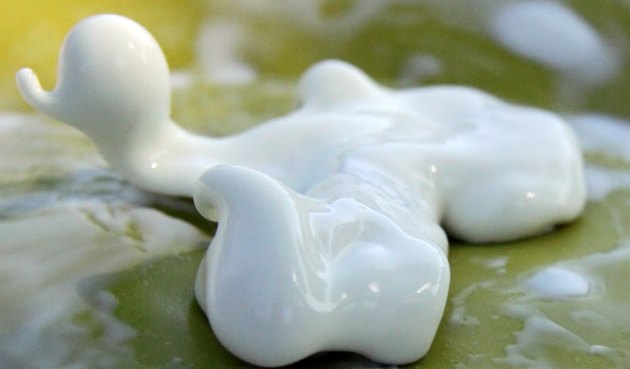Non-Newtonian Fluids
Claimed by Kyle Sabell
A non-Newtonian fluid is a specific type of fluid which does not behave in the same manner as regular fluids. The most notable difference in non-Newtonian fluids is that their viscosity is dependent on the shear rate, or the rate that shearing deformation is applied. In a Newtonian fluid, the relationship between the shear rate and force applied can be modeled by a linear curve. Non-Newtonian fluids exhibit a behavior which lacks a clear relationship between the shear rate and force applied, meaning that the viscosity of the fluid changes when a force is applied.

Significance
Applications
Non-Newtonian fluids have a variety of real-world applications. It has been found that they provide an excellent remedy to potholes, since the stress provided by fast-moving cars would drastically increase the viscosity of the dried fluid. These fluids also have a place in body armor, specifically bullet-proof vests. In industry, non-Newtonian fluids are often used in hydraulic systems because of they become thicker when a larger force is applied.
A Mathematical Model
What are the mathematical equations that allow us to model this topic. For example [math]\displaystyle{ {\frac{d\vec{p}}{dt}}_{system} = \vec{F}_{net} }[/math] where p is the momentum of the system and F is the net force from the surroundings.
Examples
Be sure to show all steps in your solution and include diagrams whenever possible
Simple
Middling
Difficult
Connectedness
- How is this topic connected to something that you are interested in?
- How is it connected to your major?
- Is there an interesting industrial application?
Examples of Non-Newtonian Fluids
- Ketchup
- Toothpaste
- Starch mixed with water
- Shampoo
- Blood
- Custard
- Paint
See also
Are there related topics or categories in this wiki resource for the curious reader to explore? How does this topic fit into that context?
Further reading
Books, Articles or other print media on this topic
External links
References
This section contains the the references you used while writing this page